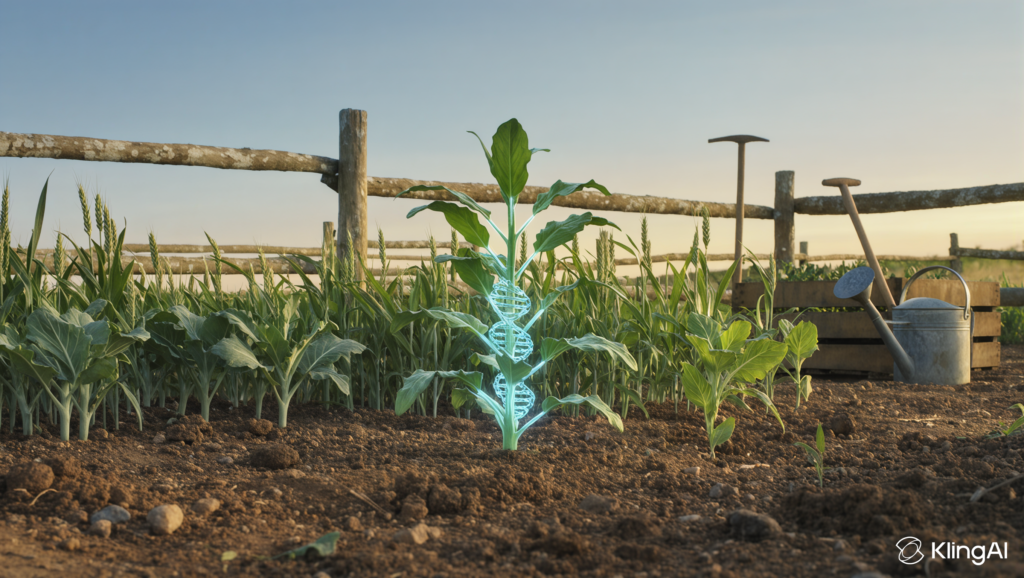If you’ve ever read the ingredient label on your favorite processed meats like bacon, hot dogs, or deli slices, you might have noticed something called sodium nitrate. But what exactly is sodium nitrate? Is it harmful to your health, or is it just another food preservative that doesn’t deserve all the attention? In this article, we’ll dive deep into what sodium nitrate is, why it’s used in foods, and how it can potentially affect your health.
What is Sodium Nitrate?
Sodium nitrate is a chemical compound made up of sodium, nitrogen, and oxygen. It naturally occurs in leafy green vegetables and is often found in the soil and water. However, the sodium nitrate you’re most likely to encounter is the synthetic version used in processed foods.
It’s a type of salt that is widely used as a preservative, mainly in cured meats. Sodium nitrate’s main job is to keep food fresh for longer and to prevent the growth of harmful bacteria, such as Clostridium botulinum, which can cause botulism, a severe form of food poisoning. In addition, it helps enhance the color of cured meats, giving them that pinkish-red hue that makes them look fresh and tasty.
Why Is Sodium Nitrate Used?
Food manufacturers use sodium nitrate because of its ability to extend the shelf life of processed meats and to keep them visually appealing. Without preservatives like sodium nitrate, many of the meats we love would spoil quickly, and their color would change to an unappetizing grayish-brown. Sodium nitrate also has a slightly salty flavor that enhances the taste of cured meats.
Processed meats that often contain sodium nitrate include:
- Bacon
- Ham
- Hot dogs
- Deli meats (like turkey and salami)
- Pepperoni
- Sausages
But while sodium nitrate keeps meats fresh and safe from bacteria, there are concerns about its impact on health. Let’s break down the pros and cons.
Is Sodium Nitrate Bad for Your Health?
1. The Link Between Sodium Nitrate and Cancer
One of the biggest health concerns with sodium nitrate is its potential connection to cancer. When sodium nitrate is heated or combined with stomach acid, it can convert into nitrosamines, which are harmful compounds that have been linked to cancer. This conversion can happen when meats are cooked at high temperatures, such as frying bacon or grilling hot dogs.
According to studies by the World Health Organization (WHO) and the American Cancer Society, nitrosamines are carcinogenic, meaning they have the potential to cause cancer. Specifically, processed meats that contain sodium nitrate have been linked to a higher risk of colorectal cancer.
Research published by the WHO classified processed meats as a Group 1 carcinogen, meaning there is strong evidence that these meats can cause cancer in humans. However, it’s important to note that sodium nitrate itself isn’t the direct cause—it’s the conversion of nitrates into nitrosamines that poses the risk.
While the evidence is concerning, it doesn’t mean you need to completely avoid all processed meats. Moderation is key. Consuming processed meats in large amounts regularly may increase your cancer risk, but eating them occasionally as part of a balanced diet is less likely to be harmful.
2. Sodium Nitrate and Heart Health
Another health issue associated with sodium nitrate is its potential effect on heart health. Some studies have suggested that consuming large amounts of processed meats containing nitrates may increase your risk of heart disease.
Nitrosamines, formed when sodium nitrate is converted during cooking or digestion, can cause inflammation and damage to the blood vessels, leading to an increased risk of heart disease. Additionally, many processed meats are high in sodium, which can raise blood pressure and further strain the heart.
However, it’s worth noting that naturally occurring nitrates found in vegetables like spinach and beets are actually good for your heart. These natural nitrates help relax blood vessels and improve blood flow, which can lower blood pressure. So, not all nitrates are bad—it’s the synthetic forms in processed foods that can cause problems.
3. The Sodium Nitrate and Obesity Connection
Processed meats that contain sodium nitrate are often high in calories, unhealthy fats, and sodium. Regularly consuming these types of foods has been linked to weight gain and obesity. Obesity, in turn, increases the risk of various health problems, including heart disease, type 2 diabetes, and certain cancers, and possible poor mental health.
Because sodium nitrate is primarily found in processed meats, which tend to be low in essential nutrients and high in unhealthy additives, people who consume a lot of these foods may also be missing out on the nutrients they need from fresh, whole foods like fruits and vegetables. This imbalance can contribute to weight gain and poor overall health.
How to Limit Sodium Nitrate in Your Diet
If you’re concerned about the health risks associated with sodium nitrate, there are several simple steps you can take to reduce your exposure:
1. Choose Fresh, Whole Foods
One of the best ways to avoid sodium nitrate is to eat fresh, organic foods like fruits, vegetables, and lean meats. Fresh meats don’t require preservatives like sodium nitrate, so they’re a safer option if you’re trying to reduce your intake of processed foods. Opt for fresh chicken, turkey, or fish over processed options like hot dogs or deli meats.
2. Look for Nitrate-Free Products
Many food manufacturers now offer nitrate-free versions of popular processed meats. These products are preserved using natural alternatives, such as celery juice powder, which contains naturally occurring nitrates that are considered safer. Look for labels that say “no nitrates or nitrites added” when purchasing meats like bacon, sausage, or deli slices.
3. Eat Processed Meats in Moderation
If you love processed meats and don’t want to give them up entirely, moderation is key. You don’t have to cut them out completely, but try to limit your intake. Instead of eating processed meats daily, enjoy them occasionally as part of a balanced diet.
4. Incorporate Antioxidant-Rich Foods
Antioxidants can help neutralize some of the harmful effects of nitrosamines. Incorporating antioxidant-rich foods like berries, leafy greens, and nuts into your diet can provide extra protection against the potential risks of sodium nitrate.
Conclusion: Is Sodium Nitrate Really That Bad?
Sodium nitrate has been used for centuries to preserve meats and prevent foodborne illness. However, the health risks associated with the formation of nitrosamines—especially when meats are cooked at high temperatures—have raised concerns about the safety of sodium nitrate in processed foods.
The link between processed meats and an increased risk of cancer and heart disease is well-documented, but it’s important to remember that moderation plays a significant role. If you enjoy processed meats, it’s best to limit your consumption and balance your diet with fresh, whole foods.
By choosing nitrate-free options, reducing your intake of processed meats, and focusing on a healthy, balanced diet, you can minimize the risks associated with sodium nitrate while still enjoying the foods you love.








